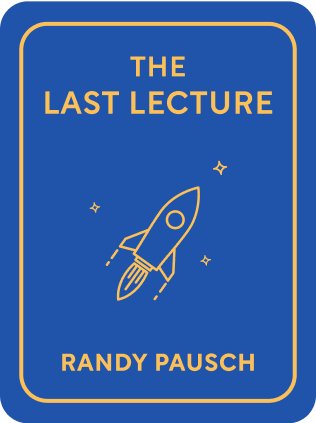

This article is an excerpt from the Shortform book guide to "The Last Lecture" by Randy Pausch. Shortform has the world's best summaries and analyses of books you should be reading.
Like this article? Sign up for a free trial here .
What are the 3 keys to success from Pausch’s The Last Lecture? How can you use these lessons to succeed in your own life?
Randy Pausch’s 3 keys to success from The Last Lecture are, value your time, know yourself, and enable other’s dreams. He also used to teach these lessons to his students when he taught computer science at Carnegie Mellon.
Keep reading to learn about Pausch’s 3 keys to success.
3 Keys to Success
As a professor, Pausch viewed his role as not just teaching his subject—computer science—but also teaching them how to succeed in life. Here are 3 keys to success from The Last Lecture:
1. Value Your Time
The first of the 3 keys to success is to value your time. Even before he got cancer, Pausch believed strongly in managing time well and emphasized this to his students. His key principles were:
- Manage your time like your money. In other words, don’t throw your time away. Spending time on irrelevant details is as useless as polishing the underside of a banister.
- Make a to-do list. To-do lists are useful for budgeting your time, but it’s important to break big tasks into smaller steps. For instance, you accomplish cleaning your room by picking up one thing at a time.
- Prioritize. Are you doing the most important things? Pausch recalled seeing a newspaper photo of a pregnant woman who worried that noise from a construction site would hurt her unborn child. But in the photo accompanying the story, she’s smoking, which is a more immediate, and probably bigger, danger.
- Create a filing system. If you don’t maintain an alphabetical filing system, you’ll constantly waste time looking for paperwork.
- Reduce time spent on the phone. Being put on hold wastes your time. If you have to wait, put your phone on speaker mode so you can do something else. Stand while talking on the phone so you’ll end calls more quickly. If you need to call someone, do it five minutes before lunchtime, so they’ll keep the conversation short.
- Delegate. Trust others to get the job done.
- Take time off. You’re not on vacation if you’re checking email or voicemail.
Pausch’s diagnosis reinforced his belief that time is a precious asset. Cancer also taught him that time is finite and you may not have as much as you think. Once, when he bought groceries, the self-checkout computer charged him twice for his $16 order. He realized that correcting this mistake would have required finding the manager, filling out a form, and getting the charge on his credit voided—a process taking at least 15 minutes. He decided he’d rather have the 15 minutes than the $16.
2. Know Yourself
The second of the 3 keys to success is to know yourself. From playing youth football, Pausch learned the importance of accurately judging your abilities and flaws. You can’t improve if you don’t have a realistic picture of yourself. So, as a professor, Pausch incorporated peer feedback into his class projects.
He collected feedback from students on their teammates, then created bar charts for each student, showing graphically whether her peers thought she was working hard, whether she was creative, whether others thought she was a team player, and how easy they thought she was to work with. Students could see not only how they ranked individually but also compared to everyone else in the class. In addition, Pausch shared classmates’ suggestions for improvement with each student.
For most students, the assessments were an eye-opener and they responded with improvement.
3. Enable Others’ Dreams
The last of the 3 keys to success is to enable the dreams of others. While at Carnegie Mellon, Pausch launched several ambitious projects where he gave students free rein and they performed far beyond expectations. He thought of these projects as ways of fueling students’ imaginations and enabling them to pursue and realize their dreams.
- The Building Virtual Worlds course. The course was open to 50 undergraduates from all disciplines. Pausch assigned them to teams and told them simply to build a virtual world. Results were so spectacular that on presentation days, hundreds of people began filling the auditorium to see the students’ work. One dean likened the atmosphere to that of an Ohio State football pep rally.
- The Entertainment Technology Center. This was a master’s degree program in which students designed such things as amusement rides, computer games, and robots. The work was so impressive that companies began offering written commitments to hire students from the program sight unseen.
- Alice—software that teaches programming. Pausch helped develop software to teach programming in a fun way to children and adults through the creation of interactive stories, movies, and video games. One of his students adapted the software to make it more appealing to girls by incorporating storytelling. Improvement continues to be an ongoing process.
Walt Disney’s dream was that Disney World never be finished but that it evolve continually. Pausch viewed the Alice software the same way, as an ever-evolving tool for realizing dreams.

———End of Preview———
Like what you just read? Read the rest of the world's best book summary and analysis of Randy Pausch's "The Last Lecture" at Shortform .
Here's what you'll find in our full The Last Lecture summary :
- What Randy Pausch's philosophy of life was
- How a professor with only months to live recounted his life's experiences and lessons
- How a computer science professor ended up on a secret project with Disney






